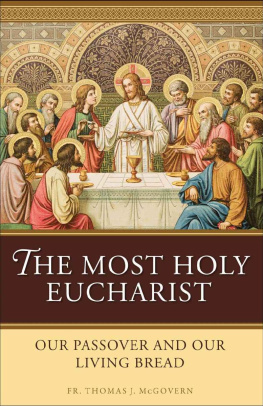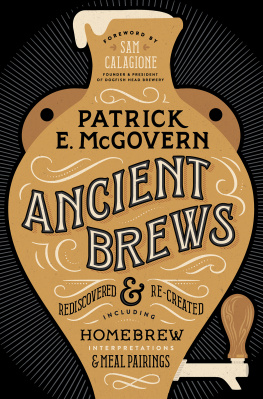First edition published by Polyanthos, Inc.
Published 1975 by Transaction Publishers
Published 2017 by Routledge
2 Park Square, Milton Park, Abingdon, Oxon OX14 4RN
711 Third Avenue, New York, NY 10017, USA
Routledge is an imprint of the Taylor & Francis Group, an informa business
Copyright 1975 James R. McGovern
All rights reserved. No part of this book may be reprinted or reproduced or utilised in any form or by any electronic, mechanical, or other means, now known or hereafter invented, including photocopying and recording, or in any information storage or retrieval system, without permission in writing from the publishers.
Notice:
Product or corporate names may be trademarks or registered trademarks, and are used only for identification and explanation without intent to infringe.
Library of Congress Catalog Number: 75-4470
ISBN 13: 978-0-87855-674-8 (pbk)
H ISTORICAL scholarship on the American family until recently has been in an arrested state, the major work on the subject being Arthur W. Calhouns overly ambitious A Social History of the American Family in three volumes published between 1915 and 1918. There were exceptions, of course, notably the pioneering works by Professor Edmund S. Morgan. Greven could establish that the modified, extended family prevailed in Andover, Massachusetts, in the seventeenth century and the ages at which parents died and children married. His data about the break up of families in Andover in the mid-eighteenth century may be useful in its implications for social movements of that period as well. Grevens information does not permit, however, a view of the authentic, individual personalities who comprised families nor the manner in which they attempted to transmit characteristics from one generation to another.
The scholarly tempo on the American family has picked up decisively in the last few years, especially with Grevens study and that of John Demos on family life at Plymouth.
Some historians believe, however, that this type of micro-unit analysis has specific value. It is more sensitive than quantification studies to the impact of change on a wider range of human experiences because it is inevitably more personal. Quantification might, for example, deal with rates of premarital pregnancy, but it will probably never be able to account for love between two people. Intergenerational changes in a continuous family may, because of their full human content, be especially useful in illustrating the dynamics of historical development. But if this type of family history rewards students of social change, it also affords important insights on continuity. It reveals the existence of a family style which adapts to change with a special corpus of family wisdom, always finding a way to exercise its known midst constant flux and thus mitigating some of the effects of change. Yankee Family is primarily concerned with a familys style, or in Bailyns terms its inner continuity i.e., the origins, development and sources of decline of that style.
The Pierce and Poor families, the subjects of the study which follows, are particularly well suited for analysis of continuity and change by virtue of the extent and quality of their source materials and their position in American life as representative middle to upper-middle class families from New England. This study is concerned with the life style of the Pierces and Poors in their regional variations on the Frontier and in the Boston area and particularly concerned with the changes in their style across the generations. The Pierce-Poors (who intermarried in 1841), while not ordinary people were not either on the same plane as the Adams family. They typified a dominant class in New England in the eighteenth and nineteenth centuries.
The source materials for the study are among the most complete for the social history of any family in America and admit of careful exposition of family units across several generations. They are principally found in the 24 boxes, 332 folders, and 70 volumes (unpublished diaries) included in the Poor Family Papers in the Schlesinger Library, Harvard University. These materials are abundant for the period 1790 to 1910. When amplified with essentially genealogical materials and town records, it is possible to reconstruct the history of this family in its major branches as far back as the 1630s when its ancestors first came to America. It would seem reasonable to estimate that there are ten to twelve thousand handwritten letters in the main collection at Harvard. The collection also includes diaries (30,000 handwritten pages), clippings and photographs. It centers on Mary W. Poor, wife of the railroad journalist and investor Henry V. Poor, residents of Brookline, Massachusetts, and is especially strong for the period from 1850 to 1900, but is nearly as extensive on Mary W. Poors family of orientation, the John Pierces, covering the first half of the nineteenth century. Reverend Pierce, who was Mary W. Poors father, contributes handsomely to sources available. Collections of his letters and sermons are located in the Massachusetts Historical Society and the Brookline Library as well as the Schlesinger. Later papers deal with the children of Henry V. Poor and Mary (Pierce) Poor, notably the prominent New York businessman and magnifico, Henry W. Poor, his sister Mary who married into the Chandler family of Brookline, and two unmarried daughters, Agnes and Lucy Poor. There are also baby books about the grandchildren of Henry and Mary Poor and extensive correspondence between them and their parents and grandparents. Many of the surviving grandchildren are today in their seventies. The author has interviewed each of them and their spouses. He has also benefited from the advice of several great grandchildren of the Poors, most notably the distinguished Professor of Business History at Harvard, Alfred D. Chandler, Jr.
The history of the Pierce-Poor family unquestionably reflects important dimensions and developments in American history; its merit is to provide human scale to explain complex, abstract processes of societal change. History may indeed have become so complicated as to require that historians go back for interpretation to individual units especially when these represent a continuous development that parallels history itself. Concepts like Puritan Ethic, Yankee and Frontier may be understood through sermons, speeches and school books, but they acquire living significance and perhaps superior instructional value as they are embodied in day to day actions of a continuous family. The same is true for such shibboleths as Republican and Social Reformer. Henry V. Poor, himself, is one of the consummate publicists and propagandists for Americas technological revolution of the mid-19th century. His life illustrates how the social reform impulse of the pre-Civil War period became subsumed in the larger social task of reconstructing America as a technological society in the Gilded Age. From his son, Henry William Poor, we learn what qualities of family tradition and training produced one of Americas wealthiest men at the end of the nineteenth century. And weaving through the history like so many cross fibers are the effects of Americas growing pluralism on the life-style of this Yankee Family.










